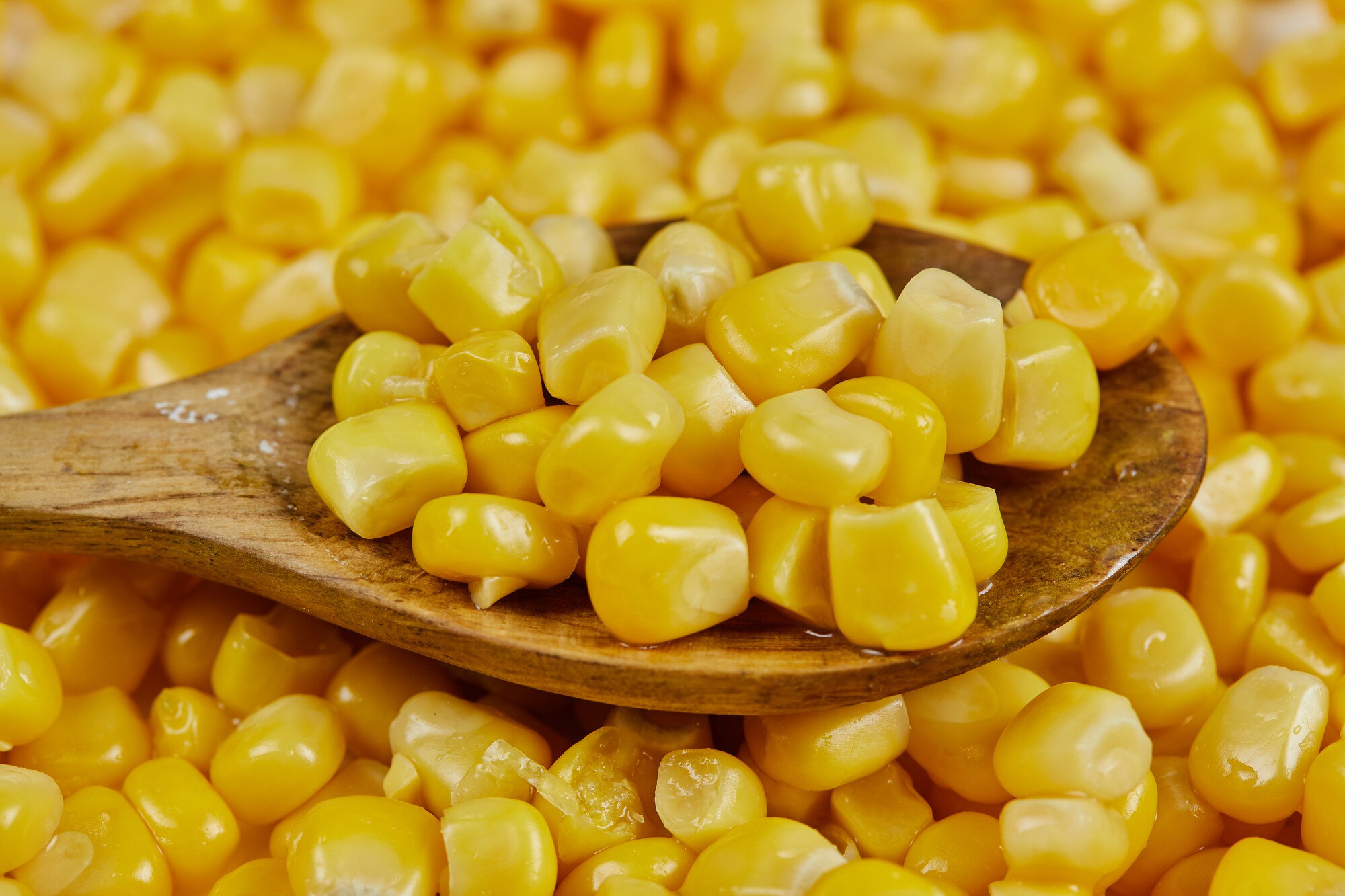
Corn Kernels /Sweet Corn
Corn is a staple food, one of the most commonly eaten and grown in the world. Corn is naturally gluten-free, and are loaded with important vitamins, minerals, and antioxidants that can help your health in a number of ways.
Specifications
| Product Description | Individually Quick Frozen Sweet Corn |
|---|---|
| Origin | India |
| General Description | IQF corn is produced from fresh, mature corn cobs by de husking, slitting, inspecting, deseeding, washing, blanching and freezing to give a free flowing product |
| Defects | Limits (Average per 1000gm)-Frozen |
|---|---|
| Foreign Matter | Nil |
| FEVM | Nil |
| EVM | Nil |
| FEVM | Nil |
| Dehydration | 2% |
| Cut kernels | 3% |
| Brix | 1142° B |
| Color | Light to golden yellow kernels |
|---|---|
| Appearance | Frozen kernels, free from defects. |
| Flavor | Sweet characteristic flavor. |
| Texture | Tender. |
| m | M | |
| Aerobic plate count | 500,000/g | 1,500,000/g |
| Total Coliforms | 1000/g | 10,000/g |
| E.Coli | 10/g | 100/g |
| Yeast and Moulds | 1000/g | 5000/g |
| Staphylococcus Aureaus | 10/g | 100/g |
| Salmonella(25g) | Absent/25g | Absent/25g |
m = the microbiological limit which separates good quality from marginally
acceptable quality
M = the microbiological limit which separates marginally acceptable quality from defective quality
Nutrition Information
Serving Size 1 Cup (182 g)
| % Daily Value* | |
| Total Fat | 0% |
| Saturated Fat | 0% |
| Cholesterol | 0% |
| Sodium | 0% |
| Potassium | 0% |
| Total Carbohydrate | 5% |
| Dietary Fiber | 4% |
| Protein | 4% |
| Vitamin C | 6% |
|---|---|
| Iran | 0% |
| Vitamin 86 | 0% |
| Magnesium | 0% |
| Calcium | 0% |
|---|---|
| Vitamin D | 0% |
| Cobalamin | 0% |
| Vitamin A | 3% |
*Percent Daily Values are based on a 2,000 Calorie diet. Your daily values may be higher or lower depending on your calorie needs.






